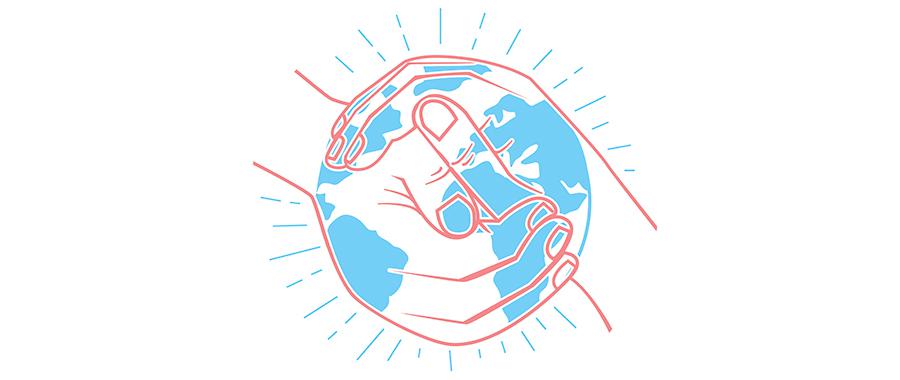In the contemporary world characterized by multiculturalism and global interconnectivity, the notion of developing a broader and more inclusive identity has attained paramount significance. The Bahá’í teachings emphasize the imperative of fostering a sense of unity and inclusivity amid diversity. This discourse explores the multidimensional aspects of building an inclusive identity, investigating both the societal imperatives and the profound philosophical underpinnings that drive this essential endeavor.
The first step in understanding the Bahá’í framework for an inclusive identity is to comprehend the philosophy of oneness. Central to Bahá’í thought is the principle that humanity constitutes a single family. This is not merely a metaphorical assertion; it is a foundational precept that influences Bahá’í ethics, social practices, and community organization. The recognition of shared identity necessitates the dismantling of artificial barriers and prejudices that often segregate individuals based on race, religion, nationality, or social status. Embracing a broader identity thus invites individuals to expand their sense of self beyond the confines of personal or societal limitations.
Moreover, inclusive identity is often cultivated through relational dynamics. The Bahá’í teachings advocate for proactive engagement with diverse groups, promoting discourse that leads to mutual understanding and respect. This nurturing of relationships fosters a collective ethos that celebrates different cultures and perspectives. Individuals are encouraged to immerse themselves within various communities, thereby enriching their own identities through shared experiences and collaborative endeavors.
A critical element in the development of an inclusive identity lies in education. The Bahá’í teachings emphasize the transformative power of education, not simply in the academic sense but as a holistic development tool that empowers individuals to understand their interconnectedness with others. Education encourages individuals to question preconceived notions and biases and to cultivate empathy. The pursuit of knowledge becomes a vehicle for personal growth and a catalyst for communal harmony. Consequently, inclusive identity is not merely a default position; it is a cultivated state of being that arises from a commitment to lifelong learning.
In delving deeper into the philosophical dimensions, it becomes apparent that cultivating an inclusive identity confronts existential questions. Individuals often grapple with their place within the tapestry of humanity. The Bahá’í worldview suggests that every person harbors a unique purpose, contributing to the greater good of society. Recognizing this multifaceted identity invites individuals to explore their spiritual and social responsibilities. It becomes a source of fascination as one realizes the interconnectedness of individual experiences and the universal quest for meaning.
Within the Bahá’í framework, the concept of justice emerges as a fundamental pillar supporting inclusivity. Justice, in this context, transcends a mere legalistic understanding. It encompasses social, economic, and spiritual dimensions, calling for equitability and balance. By cultivating a just society, individuals create an environment that nurtures inclusivity. The pursuit of justice often requires confronting systemic inequalities and advocating for marginalized voices. This process not only enhances communal cohesion but also reinforces the moral imperative to ensure that every individual feels valued and recognized.
Another vital consideration is the role of spirituality in shaping an inclusive identity. Spirituality, as articulated in Bahá’í teachings, involves a profound connection with the Divine, fostering an awareness of common humanity. This spirituality nurtures qualities such as compassion, tolerance, and forgiveness, which are crucial for constructive dialogue among diverse groups. Inclusive identity is strengthened when individuals cultivate their spiritual dimensions, affording them the grace to transcend personal biases and prejudices.
The process of developing an inclusive identity is not devoid of challenges. Resistance to change often emerges, particularly when entrenched social norms and identities face disruption. However, Bahá’í teachings advocate for resilience in the face of adversity. It is imperative to approach these challenges with a spirit of understanding and dialogue, recognizing that the journey towards inclusivity is incremental and often requires collective effort. Highlighting success stories and exemplifying the benefits of inclusivity can pave the way for others who may be hesitant to embrace this transformative process.
Additionally, it is essential to acknowledge the influence of technology and social media in shaping contemporary identities. In today’s digital age, individuals are exposed to myriad cultural perspectives, facilitating opportunities for dialogue and engagement. However, this exposure also necessitates discernment. The Bahá’í teachings encourage individuals to navigate the digital landscape mindfully, fostering connections that promote unity while being vigilant against polarization and misinformation. Embracing an inclusive identity within these contexts requires a blend of openness and critical thinking.
Ultimately, the pursuit of an inclusive identity as advocated by the Bahá’í teachings transcends individual aspirations; it serves as a foundation for societal transformation. As individuals embrace broader identities, they contribute to the creation of a more harmonious world, characterized by mutual respect and understanding. The curiosity with which one approaches this journey—the willingness to hear multiple narratives and learn from diverse experiences—fuels this ongoing quest.
In conclusion, the development of a broader and more inclusive identity, as illuminated by Bahá’í teachings, is a multifaceted endeavor rooted in the principles of oneness, education, justice, spirituality, and resilience. It beckons individuals to rise above the confines of narrow self-identity and embrace the rich diversity of the human experience. In an era where fragmentation often prevails, the cultivation of an inclusive identity stands as a beacon of hope, guiding humanity towards unity and integrity.
